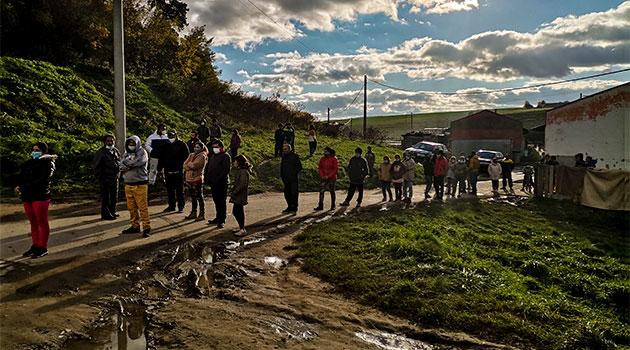Slovak Govt Roma Plenipotentiary says Romani community rates of COVID-19 infection the same as majority-society rates

Slovakia has recently tested two-thirds of its population for the novel coronavirus. The tests revealed 38 359 infected persons, or 1.06 % of the 3.63 million people who participated.
Romani community members also participated in the across-the-board testing at high rates. The testing has confirmed that Romani communities are in a similar situation to those living in other parts of municipalities and towns with respect to the pandemic.
Slovak Prime Minister Igor Matovič announced the results at the start of November. At a press conference, the PM said across-the-board testing can be an alternative to statewide quarantine when it comes to pandemic abatement.
The participation in the free testing of all inhabitants of the country older than 10 years of age was not compulsory. The Government had previously decided that those whose tests came out negative would be allowed freedom of movement during the ongoing lockdown.
Those persons who did not undergo testing are not allowed to go to work, to visit local authorities, or to shop anywhere but at retailers selling groceries and other essentials. The Office of the Slovak Government Plenipotentiary for Romani Communities said the numbers of people testing positive for COVID-19 are no higher in the environments of marginalized Romani communities than they are in municipalities where no Romani community members reside.
According to the Plenipotentiary, that state of affairs within Romani communities is a consequence of the discipline and responsibility of the Romani men and women living there. “I reject the allegations going around that Romani communities are places where COVID-19 is spreading. These allegations contribute to intensifying the stigmatization of Romani men and women as spreaders of this disease in society. I wrote to the Regional Public Health Authority and to the Chief Public Health Officer and asked them to take a wide range of factors into consideration when they set up measures to be taken in association with this disease, including any eventual isolation of entire communities, and to pay attention to safeguarding human rights,” said Andrea Bučková, the Slovak Government Plenipotentiary for Romani Communities.
According to a press release, the Office of the Plenipotentiary is implementing several measures to prevent the novel coronavirus from spreading in Romani communities. Bučková has established a Crisis Team whose members monitor the situation in Romani communities and attend meetings on crisis management at the regional and statewide levels.
The Office of the Plenipotentiary is implementing a National Project aimed at addressing unfavorable situations associated with COVID-19 in muncipalities where marginalized Romani communtiies live, with the aid of assistants in the field, and is providing supportive interventions through its Crisis Counseling Teams. “To improve the pandemic situation in marginalized Romani communities, the National Project KORONA TE Merel has been approved, and those receiving its funding are state-sponsored organizations of the Slovak Health Ministry’s ‘Healthy Regions’ program,” the press release states.
In municipalities where Romani communities live there are currently 4 100 members of the helping and support professions – field social workers, assistant health educators, community center staffers, educators’ assistants and members of the local civil defense services. Thanks to the work of these groups of professions, the current state of the spread of the novel coronavirus among the inhabitants of Romani communities is comparable to that of the majority society.
